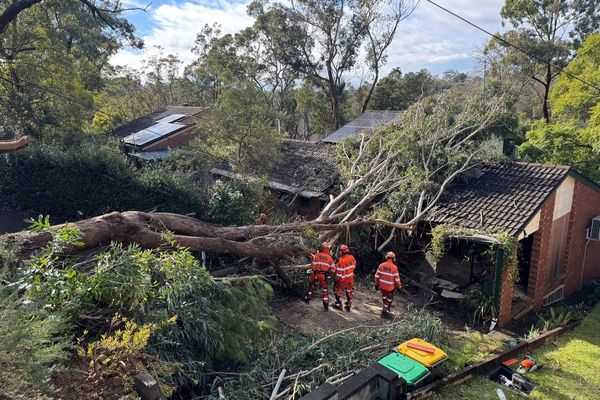
Daily interviews, an orientation session and football: this is what awaits refugees scheduled to land in Rwanda as part of the UK’s migration plan.
Some asylum seekers will be taken to the Hope hostel – a 20-minute drive from Kigali international airport – where they will be fed, taught about the country’s history and be allowed to walk past the armed security guards to stretch their legs.
“We have designated even smoking places,” said the hostel manager, Ismael Bakina.
This may soon be the reality for some, after Rishi Sunak’s vision for sending asylum seekers to Kigali became one step closer to being realised after legislation passed this week. The prime minister later said “nothing will stand in our way” when it comes to flying people out – and promised planes would be in the air within 12 weeks.
The Rwandan government said it was ready to meet that timeframe, with all arrangements in place. After all, the government has been waiting since 2022, when the agreement was signed.
“We are ready and even if asylum seekers arrive here tomorrow, we shall receive them and accommodate them,” said Alain Mukuralinda, the deputy government spokesperson.
After arriving at Kigali airport they would be taken straight to the hostel, he said. It is not clear how many people will be on the first flight.
The 50-room facility looks like any other hotel – elegant, well-painted and with fresh bedding – except for the security cameras in every corner.
Speaking to the Guardian in Kigali two days after the bill was passed, Bakina said the first step would be accommodating the arrivals. Their rooms will already be cleaned. After resting a bit they would be given three meals a day, he said.
Next, there would be orientation. In addition, “we shall offer them internet services”.
Bakina said that after a few days, when people were settled, the activity of processing their papers would begin – from tents that have already been erected. Briefings about Rwanda as a country, and what services they would receive while there, would follow.
This place would be a temporary shelter for about three months, government officials said. Bakina said interviews would be conducted on a daily basis but people would be free to engage in activities such as football, basketball or volleyball.
Those who do not want to eat what is prepared in the main kitchen can go for food outside the hostel – or prepare their own.
Rooms will be cleaned each day and there will be two categories of security guards – with some armed and others not.
At the hostel, there will be translators of different languages including English and Arabic. Every day in the evening, a red-carpeted prayer room has been reserved for those who wish to worship.
“This is not a prison or detention centre. The migrants will go everywhere they want to go including visiting the city centre,” Bakina said. Government officials say within three months, activities will focus on processing people’s documents.
For example, those who want to remain in Rwanda will be allowed to do so and officials say they will also help those who wish to return to their home countries.
However, after five years, people will have to start looking after themselves. The government said that after three months or so, people will be taken to live in permanent houses alongside Rwandans.
It is not yet known how much each arrival will be given for upkeep, but the government said it would take full responsibility for their welfare – including providing healthcare.
Those who are educated would look for jobs, Mukuralinda said. But some Rwandans wonder where they will find jobs when graduates in Kigali have failed to find employment.
“I am a graduate from the University of Butare but have been looking for a job for seven years in vain,” one former student said. Mukuralinda said the arrivals would never be held back by Rwandan culture as they are free to practise their own culture or beliefs.
“In Rwanda, we don’t segregate but those who will be attracted to our culture are welcome,” Mukurinda said.
Corruption is not as widespread as in other neighbouring countries. But poverty is still rampant, with most people still surviving on subsistence agriculture.
Mukuralinda said those who claimed Rwanda was not safe had been proved wrong after the UK government finally approved the sending of refugees.
The Rwandan opposition leader, Frank Habineza – who initially opposed the idea of sending asylum seekers to Rwanda, citing limited economic opportunities – said: “Since this agreement has become a law, we cannot oppose it but our government should respect the law and the rights of the migrants.”
After the bill was passed this week, the Rwandan government spokesperson, Yolande Makolo, said: “We are pleased that the bill has been passed by the UK parliament. However, it doesn’t alter what we have always known to be true: we have worked hard over the last 30 years to make Rwanda a safe and secure country for Rwandans and non-Rwandans alike.”







